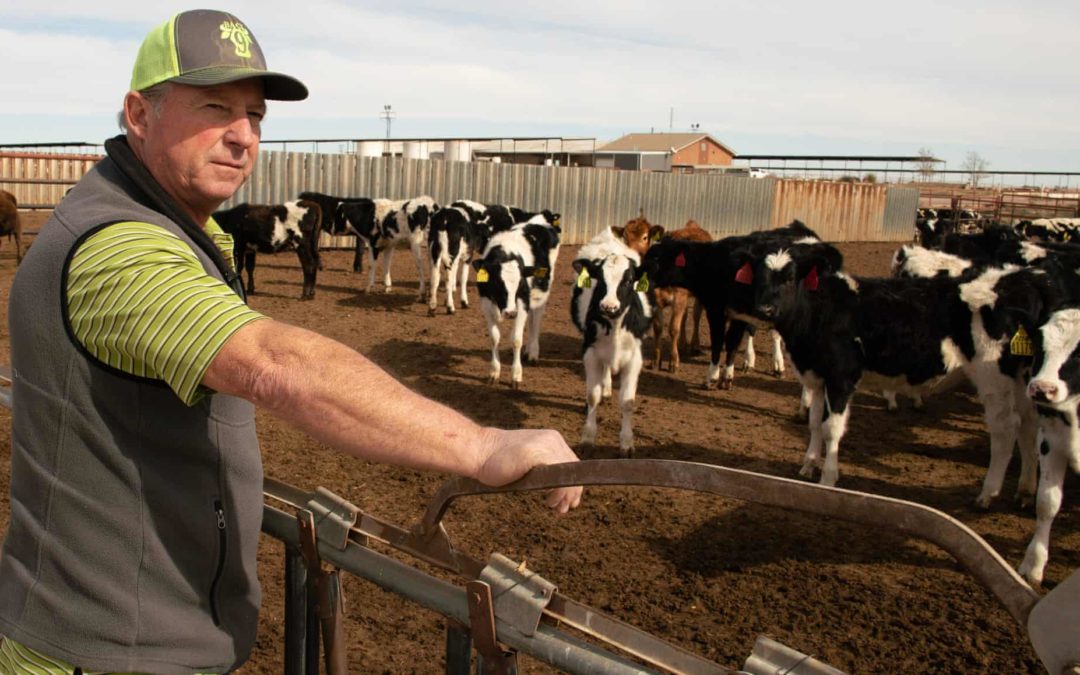SOURCE: The Guardian
DATE: February 20, 2019
SNIP: For months, Clovis, New Mexico, dairy farmer Art Schaap has been watching his life go down the drain. Instead of selling milk, he is dumping 15,000 gallons a day – enough to provide a carton at lunch to 240,000 children. Instead of working 24/7 to keep his animals healthy, he’s planning to exterminate all 4,000 of his cows, one of the best herds in his county’s booming dairy industry.
The 54-year-old second-generation dairy farmer learned last August that his water, his land, his crops – even the blood in his body – were contaminated with chemicals that migrated to his property from nearby Cannon Air Force Base.
The toxins, collectively known as PFAS, have caused rampant pollution on military installations, something the Department of Defense has known about for decades but routinely failed to disclose. Now New Mexico’s dairy industry is ground zero in an unprecedented crisis. For the first time ever, PFAS is threatening the US food supply.
“This has poisoned everything I’ve worked for and everything I care about,” Schaap said. “I can’t sell the milk. I can’t sell beef. I can’t sell the cows. I can’t sell crops or my property. The air force knew they had contamination. What I really wonder is, why didn’t they say something?”
There is plenty the air force could have said. It has for decades been aware that PFAS chemicals are toxic to humans, animals and the environment. By 2000, industry scientists and the Environmental Protection Agency had meticulously documented that they persist in the environment for millennia. They are linked to cancer, liver damage, thyroid disease, lowered immunity and high cholesterol, among other serious health problems.
They have poisoned the groundwater at 121 military bases across the US, the DOD disclosed in 2018.
“This is a national contamination crisis at this point, and we’ve really only scratched the surface in understanding how large of an impact it’s having on health, both in highly contaminated communities like Clovis and across our entire population,” said David Andrews, a senior scientist for the Environmental Working Group, which leads a campaign to regulate the compounds.
Scientific research long ago established a link to serious health impacts, such as altered puberty, endocrine disruption, pregnancy disorders, lowered fertility and increased risk of cancers (liver, testicular, kidney and pancreatic).
For Schaap, the impact is personal. He has already laid off 40 employees and is now preparing to euthanize his cattle. And he and his wife potentially face health problems, some of which could be life-threatening.
“I don’t care what they do, my property will never have the same value again,” Schaap said. “Who wants to live in a community with contaminated water?”

